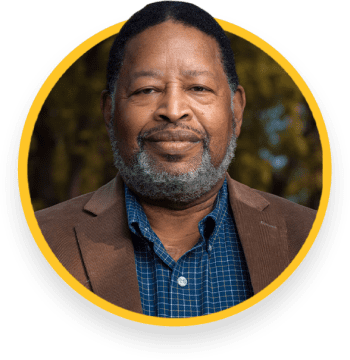Messages from
The Chiefs
saawanooki (Shawnee people),
As Chief Ben Barnes of the Shawnee Tribe, I would like to emphasize the profound importance of participating in elections at every level: local, state, federal, and tribal. Voting is not merely a right; it is a fundamental responsibility and a powerful tool for change that shapes our communities, our governance, and, ultimately, our future.
Firstly, local elections are the bedrock of democracy. They directly impact our daily lives, influencing essential services such as education, public safety, and infrastructure. Local officials make decisions that affect our neighborhoods, from zoning laws to community programs. When we vote in these elections, we voice our opinions on issues that matter most to us and ensure that our needs and values are represented. Every vote counts, and a handful of ballots can often decide local races.
Moving to state elections, these contests have significant implications for the policies that govern our states. State legislators craft laws that affect health care, education funding, and environmental protections. They also have the power to influence how federal policies are implemented within our states. By voting, we support candidates who align with our vision for our communities and advocate for policies that promote our well-being and prosperity.
At the federal level, our voices are amplified on issues that resonate across the entire nation. Federal elections determine the direction of our country on critical issues such as civil rights, economic policy, and international relations. Voting for federal representatives ensures that our concerns as tribal members, and as citizens, are heard in the halls of Congress. It is essential for us to elect leaders who respect and honor the sovereignty of tribal nations and advocate for policies that uplift Indigenous communities.
Finally, tribal elections are crucial in preserving our culture, identity, and self-determination. Tribal governance is unique, and exercising our right to vote within our tribes allows us to choose leaders who best understand our needs and aspirations. These elections are a direct expression of our sovereignty and our commitment to self-governance. By participating, we reinforce our community bonds and ensure that our tribal governments work effectively for our people.
Moreover, voting is an act of respect for those who fought and sacrificed for our rights. Throughout history, many have struggled for the right to vote, and we owe it to them and to future generations to honor their legacy by participating in the electoral process. Each time we cast our ballots, we affirm our commitment to democracy and our belief in the power of collective action.
In conclusion, voting in local, state, federal, and tribal elections is vital for building a future reflective of our values and aspirations. It empowers us, strengthens our communities, and protects our rights. As members of the Shawnee Tribe and as citizens, let us embrace our responsibility to vote and shape the world we wish to see. Together, we can create a brighter future for ourselves and generations to come.
niyaawe, hiini lehki (Thank you, that’s all),
Chief Ben Barnes
Hato Caakiwiyeefa, (Hello everyone,)
First, I would like to say that I hope everyone is doing well. I am writing this report one week after our 2024 General Council meeting. At this year’s meeting, several milestones were noted with the foremost being the retirement of Councilor Scott Secondine. Scott was the last of the Business Councilors elected in 2001 after our separation from the Cherokee Nation. I joined the council later that year due to a vacancy. During those early years, we met at the community building at White Oak and the old Big Cabin School. At the time, our Business Council received a stipend of $10.00 dollars per meeting, which many signed and returned to the tribe. This practice continued until our offices moved to Miami, Oklahoma. It was during the move to Miami that we hired our first Tribal Administrator who, along with an assistant and a secretary, officed in the Intertribal Building until our first building was built with a grant and funds received from the sale of the Big Cabin School to the Grand Gateway Council on Aging.
Today, we have several buildings in and near the City of Miami, which house nearly 60 employees providing services in the following areas: Behavioral & Mental Health, Burial Assistance, Child Care Assistance, Domestic Violence Victim Services, Elder Assistance Reimbursement, Education Assistance, Housing and Utility Assistance, Indian Child Welfare, School Clothing and Extracurricular Activity Assistance, Vehicle Tags and Workforce Reimbursement Assistance, and more.
Whereas in the beginning, our tribe depended upon federal grants to fund programs such as Child Care Assistance, today, we use our own funding for several programs that allow us to provide services to citizens from coast to coast.
At the General Council meeting, Shawnee Development Chairman Chris Floyd gave a report on our casino expansion and plans for future diversification. In support of Chairman Floyd, I say that they are doing an amazing job through their efforts. I say this because, in the past, I had the opportunity to speak with a tribal leader from a large tribe at an economic development conference. He reported that their success had taken several decades. Today that tribe has multiple casinos and businesses in several states that provide the basis for solid programs for their citizens. They have also been expanding upon many cultural activities that promote language preservation and recognition to those citizens who went above and beyond in helping their people.
In the past, I have spoken about working to provide a future for our children, grandchildren, great-grandchildren, etc. My confession is that I first heard that concept in conversation with other tribal leaders and have had the opportunity to see the potential of following that path. A future that could belong to our descendants.
niyaawe (thank you),
Roy D. Baldridge
Second Chief



